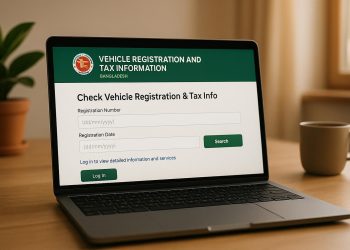The automotive industry in Bangladesh has expanded quickly as the nation has developed. The automotive sector is now recognized as one of Bangladesh’s key industrial sectors. The industry contributes to the national economy.
The need for transport has been growing quickly along with job rates, population growth, industrialization, and enterprises. People are becoming increasingly interested in buying cars, motorbikes, and other types of vehicles due to economic growth and improving financial capabilities, according to the Scope of the Company outlined in the Memorandum of the company’s incorporation.
This company has been legally vetted. In Bangladesh, businesses are either public or private. There must be a least seven investors for a public company.
On the other hand, a private firm cannot be established without at least two shareholders. A private company cannot solicit the wider populace to subscribe for its shares, but a public corporation may.
In actuality, private corporations are regarded as the preferred company structure by local and foreign business owners.
100% foreign equity is allowed since there is no subject to foreign equity participation for foreign direct investment. In Bangladesh, obtaining a business permit is an essential requirement for starting a business.
Every business entity must get a Trade License from the relevant local governmental authority. An application accompanied by the required paperwork must be filed with the relevant local government agency to get a trade license. The Bangladeshi government issues a TIN Certificate to each person or business to track tax payments. The sole source of TIN Certificates is the National Bureau of Revenue (NBR).
The NBR must receive an online application before obtaining the TIN Certificate. Under its liberalized Commercial enterprise Logical argument and commodity-focused, backstage plane figure-led economical scheme, Bangladesh offers significant investment options to overseas enterprises or people thinking about investing there.
Demur for a few restricted industries, all economic sectors in Bangladesh are open to private investment. For example, the automotive manufacturing is entirely unfastened to internationalistic finance.
The government’s role is to act as a facilitator to help establish a climate that will encourage the growth of private sector investment domestically and abroad.
Additionally, this assures that local and foreign investments are treated equally, and that income and share sale revenues be returned home. The Working-class Act of 2006 principally regulates employment legislation in Bangladesh.
The National Child Labor Elimination Policy 2010, the Employment Regulation 2015, the Political unit Employment Policy 2012, the Bangladesh Worker Welfare Primer, the country’s Employee Welfare Base Regulation, the Federal Activity Safety and Health Policy 2013, and the Residential Employees Protection and Benefits Policy 2015 are additional concept and modulate concern to this matter.
In addition, the 2006 Labor Act covers the employment of labor, relationships between employer and employees, a deposit of reward and benefits for worker injuries, leaves of absence, benefits, the creation of unions, the resolution of labor disputes, as well as financial aid, wellness, status, and employed circumstance in the workplace.




